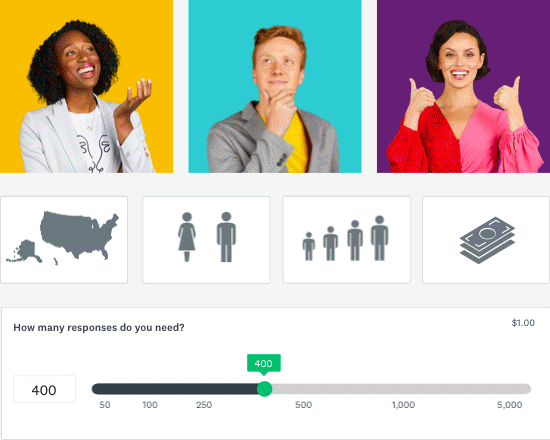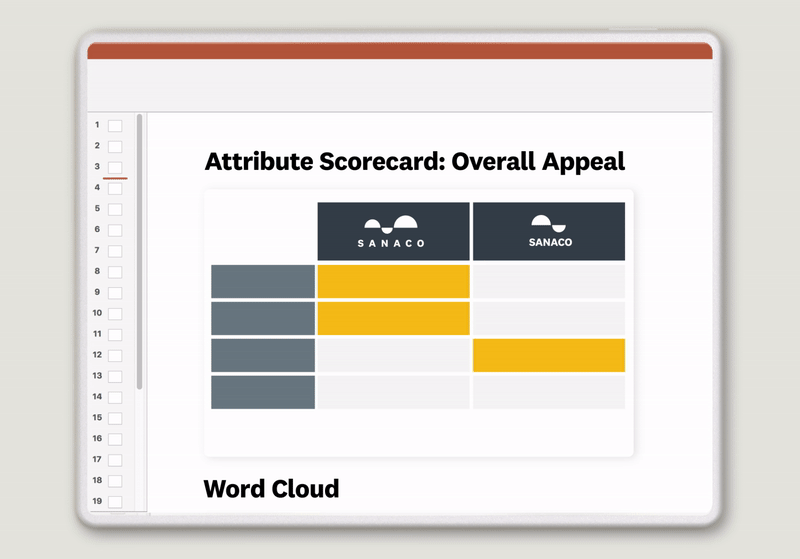More Resources
What is market intelligence?
Market intelligence is the information that a company collects about the market in which it currently operates or wants to operate. This information helps the company define its market segment, market penetration, and overall opportunity.
Marketing intelligence often includes competitor intelligence, which focuses on information about a company’s particular competitors. This can indicate current market share, pricing levels, and customer trends that will support leaders in making informed business decisions.
Keep in mind, any marketing intelligence definition will differ from business intelligence. Market intelligence provides an overall external view of the market where companies sell. However, business intelligence refers to internal data like productivity, company sales, processes, and similar information. Increasingly, market intelligence data and business intelligence are being combined to arm leaders with a more complete picture of their target market.
Organizations can gather market intelligence data from a variety of sources. Internal data, or data a company generates and maintains itself, can reveal sales trends and new customer behaviors. External data gathered from industry trade journals, articles, and websites that include distributor and vendor insights can also be valuable. Many organizations collect their own market intelligence by conducting market research surveys that are specific to their industry sector.
Ready to lead your market?
Use SurveyMonkey’s Audience panel to get a jump on competitors.
Why perform market intelligence?
For market intelligence to be effective, it needs to be specific to the organization. While internet searches are useful for gathering information, they may not provide enough specific information to help a company increase its market share or grow its revenue.
It is becoming increasingly essential for organizations to perform their own market intelligence research. This allows them to design their research so it provides specific data, which they can quickly act upon to improve their position in the market in which they operate.
There are six important advantages to performing market intelligence research that is tailored to your organization.
1. Uncover new markets and drive market expansion
To increase revenue, organizations are constantly on the lookout for new market opportunities—whether that means entering an entirely new market or expanding their presence in an existing market.
Performing surveys and research is key to understanding your market opportunities. This may involve researching the current potential in a specific market and how much demand there is for the product. Distributors and vendors can provide data on the best ways to get products to market, while industry experts can provide their views on current trends.
Surveys and market research will uncover who your competitors are, how they have remained successful, and how they may react to a new company coming onto the scene. This competitive intelligence is important for any growing company, particularly if its leaders want to make data-driven decisions regarding entering a new market.
As Harvard professor Michael Porter explained, companies face particular barriers to entry with a new marketplace.
- Brand loyalty: Target customers have loyalty to brands that already exist in the market.
- Cost advantages: Existing companies are usually able to produce products more easily and bring those products to market at a lower price.
- Government regulations: Regulations may be hard or expensive to overcome for new market entrants.
- Capital requirements: It can take a large investment to enter a new market.
- Access to suppliers and distribution channels: Existing companies may have exclusive rights to suppliers and distribution channels.
- Retaliation: Existing companies can go to great lengths to deter new market entrants.
Competitor research into each of these barriers can help you understand and address the potential problems of entering a new market before you launch a new product.
2. Minimize investment risk
Making a bad decision is expensive. That’s why organizations need as much information as possible about their market before they invest in a new product or service, or before they spend time improving an existing product. Marketing intelligence provides data to business leaders to help them make better decisions about where and how to use their resources.
To minimize risks involved with new markets or products, it’s important to collect competitor research on who is in the market and how they sell to customers. Companies may also use product intelligence data as part of their market intelligence research. This involves analyzing large databases of product transaction data to look for trends that will improve the customer experience and lead to greater brand loyalty.
The electronics industry, for example, is known for using product intelligence data. Product managers focus on getting automatic data about the product’s quality and testing data so they can quickly improve products and get new products to market.
Understand your target market and get the data you need quickly with SurveyMonkey Audience.

3. Stay ahead of the competition
What happens if you’re already a leader in your industry? How do you maintain that prime position?
That’s where a specific study focused on your competitors will help. You can perform a competitive marketing intelligence study to stay ahead of your competition and keep up with market trends. You will want to understand not only where your competitors stand today, but what their business plans are for the future.
Depending on what you want to achieve, your competitor research may include:
- Product differentiators
- Key features and benefits
- Pricing, including shipping terms
- Business funding, including venture capital
- Marketing approach, including social media, content, and sales materials
Industry experts, former employees, distributors and customers, financial reports, and other sources are often used to gather competitor intelligence and keep a leg up on the competition.
4. Expand market share
Giving the customer what they want, when they want it, at the price they want it, helps to increase sales.
Organizations are constantly surveying their clients and customers to find out what their problems are and how they can solve them. Creative ideas for new products and services are born from the need to solve customer problems.
Customer surveys are a great way to understand customer behavior, and panel studies monitor behavior over time to identify trends and opportunities. If your goal is to expand your market share, you will need to identify who the customers are in a specific market segment and what they need to solve existing or emerging problems.
5. Develop brand positioning
Companies need to create a distinctive identity in the marketplace, one that customers know and trust. To achieve this, they can perform market intelligence research that helps them position their company and their brand in the market.
Surveys that focus on brand positioning are a great way to understand what unique characteristics set one company and its brand apart from competitors. Similarly, corporate positioning studies that are specific to an organization’s target market will help provide intelligence on how customers view a particular brand.
Each company should have its own brand positioning statement, and studying competitors' brand positioning statements will provide insight into how they reach their target market. Your competitors’ brand positioning statement should reveal their:
- Target market description
- Target market needs
- Description of how their company will meet their target market’s needs
- Product or service differentiators
- Statement on why their consumers should believe their brands’ promise
What makes your brand unique?
Get key insights with SurveyMonkey Audience.
6. Target specific customer segments
Market segmentation refers to dividing your target market into smaller, specific groups. When companies use market research to identify specific market segments, they can tailor their marketing and businesses decisions accordingly.
For instance, say a fast food restaurant’s target market is 18 to 34-year-old males who eat out at least 12 times a month. That business may design and market its menu, hours of operation, and products with this market segment in mind.
Once an organization divides its market into segments with specific needs and tastes, it can create unique products for that segment that differentiate it from its competitors. Gaining market intelligence about target segments is critical to successful marketing and selling.

How to develop market intelligence
Market intelligence helps companies focus on serving the needs of their target market and develop a deeper understanding of competitors and the business environment.
Structuring a market intelligence research program will help you collect current data that leads to better decisions, increased market share, and improved brand positioning.
Step 1: Establish a goal
Start with the end in mind. What do you want to accomplish with your market intelligence research? There are many advantages to this type of research, but to make the most of your project you need to clarify its scope.
For example, your goal could be to conduct different studies that evaluate new or existing products and markets. These studies usually focus on a combination of the following:
- Existing products in existing markets. You will want to understand how your brand is differentiated from competitors. Competitive intelligence studies, brand positioning, and market segmentation studies can be helpful for this.
- Existing products in new markets. You will want to focus on developing a market for your products. Market assessment, market entry, and expansion studies can all be used to understand markets you do not currently operate in.
- New products in new markets. Interested in an entirely new venture? You will want to perform concept testing studies and market entry studies to lower the risk of making a poor decision.
- New products in existing markets. Product development research will be key as you conduct consumer needs assessments, market segmentation studies, and concept testing studies.
Your research goal will help you determine what resources and methodology you will use to collect data.
Step 2: Define metrics
Once you have defined the scope of your study, you can determine which metrics should be used to evaluate the results. Metrics will vary by organization depending on the goal of its research.
Metrics that can be used to evaluate your research include:
- Competitors: Number of competitors, market share for each
- Market size: Annual revenue, number of potential customers, expected growth
- Customers: Average age, income, annual spend on desired product
- Pricing: Average price per product in market segment
For instance, if you are selling a new type of shaving cream for U.S. males ages 18-35, you might want to have the following metrics for your study:
- How many large competitors are in this market?
- What is the total annual revenue of shaving cream?
- How much shaving cream do 18 to 35-year-old males in the U.S. use each year?
- What is the average price per unit of shaving cream?
- What is the average income of U.S. males ages 18-35?
You will save time and effort by deciding what statistics are important to your study before you start your project. It will help focus your efforts on which data is important to your study.
Your project ROI is another important metric. Most companies have a budget for each research project. They want to know that they will get a return on their market intelligence research programs. Internet research and online surveys are excellent ways to get the metrics you need and achieve a positive ROI for your project.
Step 3: Structure a research approach
Depending on your budget, there are several ways to gather market intelligence data.
Online research will give you access to trade journals, industry experts, customer reviews and more. Some research portals require a fee, especially to gather competitive intelligence like annual sales, number of customers, and company profitability.
Online surveys are a cost-effective way to gather customer information for insights into brand positioning, market assessments, and product concept testing.
Product intelligence and data analytics can provide insights and trends from actual consumer purchases from large databases. Both are growing in popularity when it comes to market research, however they are generally an additional expense.
Expert consultants from market intelligence forms are often brought in to guide companies through multi-million dollar product launches. They can provide detailed insights, data, and guidance—at a cost.
Your research goal, desired metrics, and budget will determine how much data you can collect for your research.
Step 4: Gather and analyze data
Competitor intelligence, market intelligence, online research, and customer surveys will provide an immense amount of data. The next step involves turning that data into useful information that your organization can use to make decisions. How can you manage it all?
- Start with your original project goal. What were you trying to prove? Did you have a hunch that your new product concept would work in a new market? Sort out that data that validates if you have a product hit or miss.
- Competitive intelligence is critical. What did you find out? Who are the top competitors? Are they maintaining a strong lead in the market or are they slipping? Who looks like a new competitor? What is your standing compared to your top competitors?
- Call out specific market segments. Are there specific segments that are growing or declining? Are there new segments where customers are demanding new products and services?
- Describe what your surveys revealed. Are there new trends, or are customer behaviors changing? A panel study may be best to track consumer behavior over time as they adjust to market changes.
- Make recommendations based on the research. Now that you have performed a detailed review of competitors, market segments, consumer preference, and related factors, what is the best course of action?
- Include the ROI for the project. Did you find a market opportunity that will generate more revenue than the cost of the study? Make sure to include that in your report.
- List your insights in a clear report. Your organization’s leadership team will want to understand your recommendations. If your research project has an executive sponsor, make sure they are aware of what your research uncovered.

Step 5: Take action on insights
The information you collected in your market intelligence research shouldn’t sit on a shelf. Your leadership team will want to know how they can act on your research. Competitor research, customer insights, product intelligence and other valuable information allows businesses leaders to formulate informed and impactful strategies.
Market intelligence vs market research
What is marketing intelligence vs marketing research? They may sound the same, but they have two different purposes.
Marketing intelligence provides an overall view of a market. Market research is more specific information on individual customer preferences. Market research is often part of a marketing intelligence data collection effort.
Market research can also be part of your competitor intelligence research efforts. You will discover which organizations have the biggest market share, best pricing, advanced business intelligence, and brand loyalty. All of this information is critical to understanding the markets in which you operate.
Using SurveyMonkey to build market intelligence
SurveyMonkey’s Audience panel helps you get responses from the exact groups you need to evaluate. With SurveyMonkey Audience, you can build market intelligence by:
- Evaluating consumer preferences for new and existing products
- Discovering your competitors' product differentiators
- Uncovering your brand positioning strengths and gaps
- Validating optimal price points for new or existing products
- Providing longitudinal data for improved customer behavior insights
- Performing concept testing for new products in new or existing markets
Get started with your market research
Global survey panel
Collect market research data by sending your survey to a representative sample
Research services
Get help with your market research project by working with our expert research team
Expert solutions
Test creative or product concepts using an automated approach to analysis and reporting
